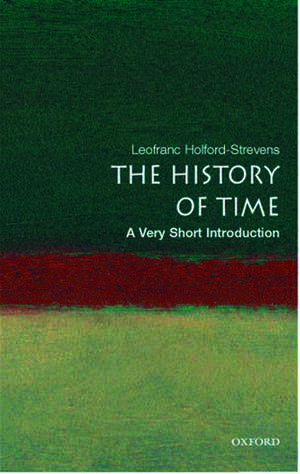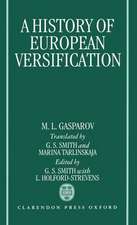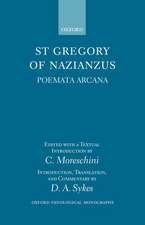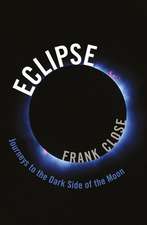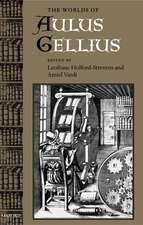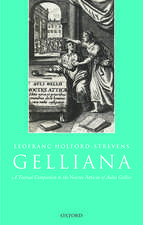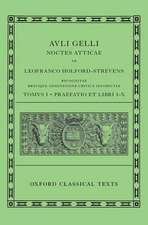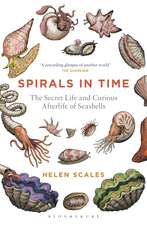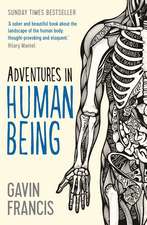The History of Time: A Very Short Introduction: Very Short Introductions
Autor Leofranc Holford-Strevensen Limba Engleză Paperback – 11 aug 2005
Din seria Very Short Introductions
-
 Preț: 47.44 lei
Preț: 47.44 lei -
 Preț: 47.19 lei
Preț: 47.19 lei -
 Preț: 40.95 lei
Preț: 40.95 lei -
 Preț: 46.09 lei
Preț: 46.09 lei - 5%
 Preț: 56.93 lei
Preț: 56.93 lei -
 Preț: 56.45 lei
Preț: 56.45 lei -
 Preț: 56.93 lei
Preț: 56.93 lei -
 Preț: 46.72 lei
Preț: 46.72 lei - 17%
 Preț: 51.73 lei
Preț: 51.73 lei - 18%
 Preț: 51.45 lei
Preț: 51.45 lei - 18%
 Preț: 51.54 lei
Preț: 51.54 lei - 17%
 Preț: 51.82 lei
Preț: 51.82 lei - 17%
 Preț: 52.08 lei
Preț: 52.08 lei - 17%
 Preț: 51.99 lei
Preț: 51.99 lei - 17%
 Preț: 52.16 lei
Preț: 52.16 lei - 17%
 Preț: 52.08 lei
Preț: 52.08 lei - 17%
 Preț: 51.73 lei
Preț: 51.73 lei - 18%
 Preț: 51.45 lei
Preț: 51.45 lei - 17%
 Preț: 52.26 lei
Preț: 52.26 lei - 17%
 Preț: 51.91 lei
Preț: 51.91 lei - 17%
 Preț: 51.73 lei
Preț: 51.73 lei - 18%
 Preț: 50.75 lei
Preț: 50.75 lei - 17%
 Preț: 51.79 lei
Preț: 51.79 lei - 18%
 Preț: 51.19 lei
Preț: 51.19 lei - 17%
 Preț: 51.63 lei
Preț: 51.63 lei - 30%
 Preț: 43.88 lei
Preț: 43.88 lei -
 Preț: 67.80 lei
Preț: 67.80 lei - 17%
 Preț: 51.63 lei
Preț: 51.63 lei - 17%
 Preț: 51.91 lei
Preț: 51.91 lei - 17%
 Preț: 51.63 lei
Preț: 51.63 lei - 17%
 Preț: 51.82 lei
Preț: 51.82 lei - 17%
 Preț: 51.73 lei
Preț: 51.73 lei - 18%
 Preț: 51.28 lei
Preț: 51.28 lei - 17%
 Preț: 51.63 lei
Preț: 51.63 lei - 17%
 Preț: 51.63 lei
Preț: 51.63 lei - 17%
 Preț: 52.16 lei
Preț: 52.16 lei - 18%
 Preț: 51.28 lei
Preț: 51.28 lei - 18%
 Preț: 51.00 lei
Preț: 51.00 lei - 17%
 Preț: 52.08 lei
Preț: 52.08 lei - 18%
 Preț: 51.00 lei
Preț: 51.00 lei - 17%
 Preț: 52.16 lei
Preț: 52.16 lei - 18%
 Preț: 51.45 lei
Preț: 51.45 lei - 17%
 Preț: 51.82 lei
Preț: 51.82 lei - 17%
 Preț: 52.16 lei
Preț: 52.16 lei - 17%
 Preț: 51.91 lei
Preț: 51.91 lei - 17%
 Preț: 52.08 lei
Preț: 52.08 lei - 17%
 Preț: 52.43 lei
Preț: 52.43 lei - 17%
 Preț: 52.26 lei
Preț: 52.26 lei - 17%
 Preț: 51.63 lei
Preț: 51.63 lei
Preț: 51.63 lei
Preț vechi: 62.56 lei
-17% Nou
Puncte Express: 77
Preț estimativ în valută:
9.88€ • 10.25$ • 8.26£
9.88€ • 10.25$ • 8.26£
Carte disponibilă
Livrare economică 11-17 februarie
Livrare express 11-15 februarie pentru 26.50 lei
Preluare comenzi: 021 569.72.76
Specificații
ISBN-13: 9780192804990
ISBN-10: 0192804995
Pagini: 160
Ilustrații: numerous b/w line illustrations and halftones
Dimensiuni: 111 x 174 x 10 mm
Greutate: 0.14 kg
Editura: Oxford University Press
Colecția OUP Oxford
Seria Very Short Introductions
Locul publicării:Oxford, United Kingdom
ISBN-10: 0192804995
Pagini: 160
Ilustrații: numerous b/w line illustrations and halftones
Dimensiuni: 111 x 174 x 10 mm
Greutate: 0.14 kg
Editura: Oxford University Press
Colecția OUP Oxford
Seria Very Short Introductions
Locul publicării:Oxford, United Kingdom
Notă biografică
Leofranc Holford-Strevens, a classicist, received a D.Phil from Oxford University in 1971. The author of Aulus Gellius (1988), and co-author of The Oxford Companion to the Year (OUP 1999), he is a desk-editor with Oxford University Press. He has a long-standing interest in calendars, chronologies, and the calculation of time.
